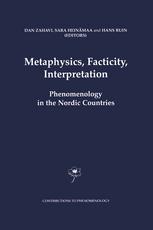

Most ebook files are in PDF format, so you can easily read them using various software such as Foxit Reader or directly on the Google Chrome browser.
Some ebook files are released by publishers in other formats such as .awz, .mobi, .epub, .fb2, etc. You may need to install specific software to read these formats on mobile/PC, such as Calibre.
Please read the tutorial at this link: https://ebookbell.com/faq
We offer FREE conversion to the popular formats you request; however, this may take some time. Therefore, right after payment, please email us, and we will try to provide the service as quickly as possible.
For some exceptional file formats or broken links (if any), please refrain from opening any disputes. Instead, email us first, and we will try to assist within a maximum of 6 hours.
EbookBell Team

4.0
86 reviewsThe past decade has witnessed a notable turn in philosophical orientation in the Nordic countries. For the first time, the North has a generation of philosophers who are oriented to phenomenology. This means a vital rediscovery of the phenomenological tradition as a partly hidden conceptual and methodological resource for taking on contemporary philosophical problems.
The essays collected in the present volume introduce the reader to the phenomenological work done in the Nordic countries today. The material is organized under three general headings: metaphysics, facticity, and interpretation.
The first part, "Metaphysics", asks if phenomenology is, or could be taken as, a metaphysical inquiry. It studies this possibility in a systematic as well as in a historical perspective. The second part, "Facticity", focuses on the double character of the philosophizing subject, on the one hand, as a worldly being bound by a cultural and historical situation, and on the other hand, as the one who thinks this condition and gives it an interpretation. It studies four aspects of facticity in particular: language, dwelling, alterity, and generation. The third part, "Interpretation", clarifies the different notions of interpretation central to phenomenology, understood as hermeneutics.